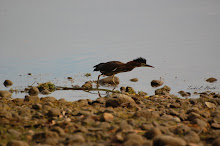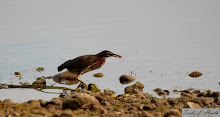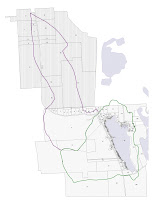Sunday, August 2nd, the Song Lake Property Owner's Association Picinic will be held at the Jezer's. The meeting will start at 4:00PM, followed by a picnic dinner at 5:00.
The Song Lake Watershed Committee will have secondary surveys and other information to share.
Saturday, July 25, 2009
Friday, July 17, 2009
Bird watching
Wondering if anyone has seen a green heron this year (see pictures on right).
Compared to prior years, there seem to be very few water birds. Does anyone else have impressions on this?
Compared to prior years, there seem to be very few water birds. Does anyone else have impressions on this?
Friday, July 3, 2009
Best Wishes for a Happy Fourth!
Nothing says “celebration” quite like fireworks; and pyrotechnics on the 4th of July is a common practice. As we enjoy the festivities of Independence Day, it is also important to understand the concerns over such displays. Understanding the chemicals involved, and their affect on the environment has increased with concerns for both air and water contamination.
The water contaminate in question is called perchlorate. Perchlorate can come from natural sources such as lightning discharges as well as some agricultural sources of fertilizers, however, the perchlorate in fireworks are powerful oxidants; the same as used in solid rocket fuel. In a recent, three-year study1 it was found that within 14 hours after firework displays over a lake, the perchlorate levels rose 24 to 1, 028 times the original level. The levels peaked at 24 hours, taking from 20 to 80 days for them to recede to the pre-fireworks, background levels.
Perchlorate does pose human-health concerns, and the EPA continues to study the link between exposure and adverse neurodevelopmental outcomes in children. According to the Agency for Toxic Substances and Disease Registry2, “High levels of perchlorate can affect the thyroid gland, which in turn can alter the function of many organs in the body. Developing organisms can be especially susceptible.” They also pose risks to wildlife. Levels as low as 100 Micrograms per liter have proven to cause thyroid problems in fish. Parents of very young children and pregnant mothers should be mindful of the timing of their water exposure after firework displays.
Fireworks also negatively impact air quality by dispersing high levels of smoke and dust, combined with heavy metals, organic compounds and gasses. Those with asthma or other health problems should be especially careful of their proximity to the displays. The Walt Disney Company became concerned about the impact of their fireworks on human health and air quality. The company has pioneered new technology that uses environmentally friendly compressed air instead of gunpowder. These same concerns have caused many municipalities to opt for laser light displays instead of fireworks.
So, as we celebrate this year’s 4th of July, with or without fireworks, we hope it is a safe and festive occasion for all.
1 Perchlorate Behavior in a Municipal Lake Following Fireworks Displays, Wilkins, Fine and Burnett, USEPA National Risk Management Research Laboratory, 2007
2Agency for Toxic Substances and Disease Registry, Perchlorates, Sept. 2005
Also consult: U.S. Food and Drug Administration at, http://www.cfsan.fda.gov/~dms/clo4qa.html#effects and The American Pyrotechnic Association, at http://www.americanpyro.com/index.html
Nothing says “celebration” quite like fireworks; and pyrotechnics on the 4th of July is a common practice. As we enjoy the festivities of Independence Day, it is also important to understand the concerns over such displays. Understanding the chemicals involved, and their affect on the environment has increased with concerns for both air and water contamination.
The water contaminate in question is called perchlorate. Perchlorate can come from natural sources such as lightning discharges as well as some agricultural sources of fertilizers, however, the perchlorate in fireworks are powerful oxidants; the same as used in solid rocket fuel. In a recent, three-year study1 it was found that within 14 hours after firework displays over a lake, the perchlorate levels rose 24 to 1, 028 times the original level. The levels peaked at 24 hours, taking from 20 to 80 days for them to recede to the pre-fireworks, background levels.
Perchlorate does pose human-health concerns, and the EPA continues to study the link between exposure and adverse neurodevelopmental outcomes in children. According to the Agency for Toxic Substances and Disease Registry2, “High levels of perchlorate can affect the thyroid gland, which in turn can alter the function of many organs in the body. Developing organisms can be especially susceptible.” They also pose risks to wildlife. Levels as low as 100 Micrograms per liter have proven to cause thyroid problems in fish. Parents of very young children and pregnant mothers should be mindful of the timing of their water exposure after firework displays.
Fireworks also negatively impact air quality by dispersing high levels of smoke and dust, combined with heavy metals, organic compounds and gasses. Those with asthma or other health problems should be especially careful of their proximity to the displays. The Walt Disney Company became concerned about the impact of their fireworks on human health and air quality. The company has pioneered new technology that uses environmentally friendly compressed air instead of gunpowder. These same concerns have caused many municipalities to opt for laser light displays instead of fireworks.
So, as we celebrate this year’s 4th of July, with or without fireworks, we hope it is a safe and festive occasion for all.
1 Perchlorate Behavior in a Municipal Lake Following Fireworks Displays, Wilkins, Fine and Burnett, USEPA National Risk Management Research Laboratory, 2007
2Agency for Toxic Substances and Disease Registry, Perchlorates, Sept. 2005
Also consult: U.S. Food and Drug Administration at, http://www.cfsan.fda.gov/~dms/clo4qa.html#effects and The American Pyrotechnic Association, at http://www.americanpyro.com/index.html
Subscribe to:
Posts (Atom)


